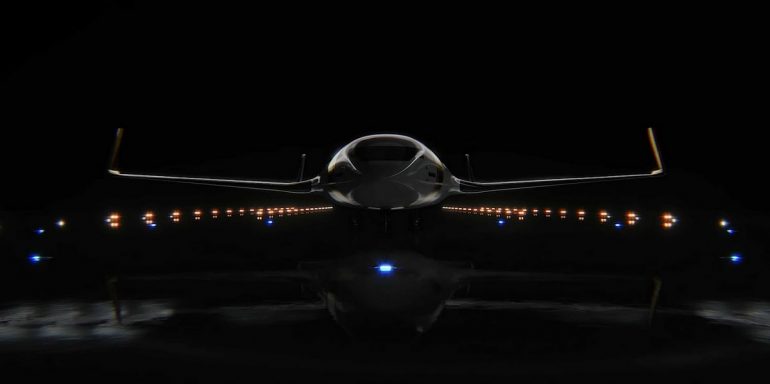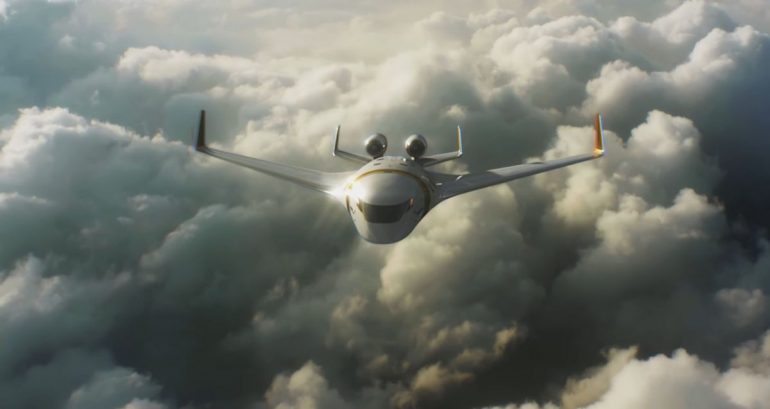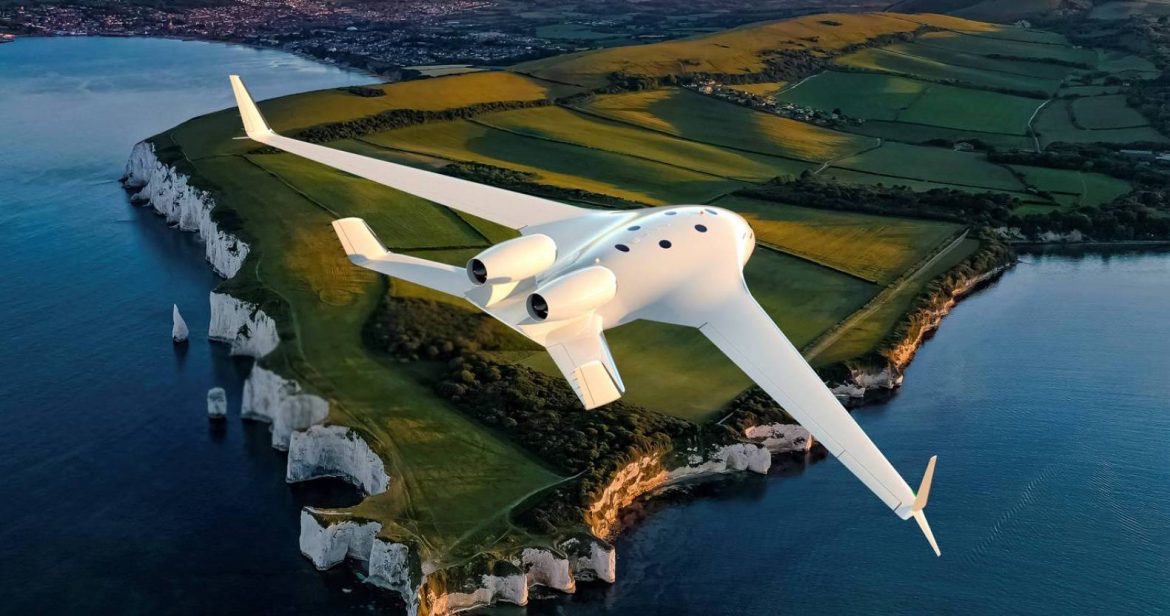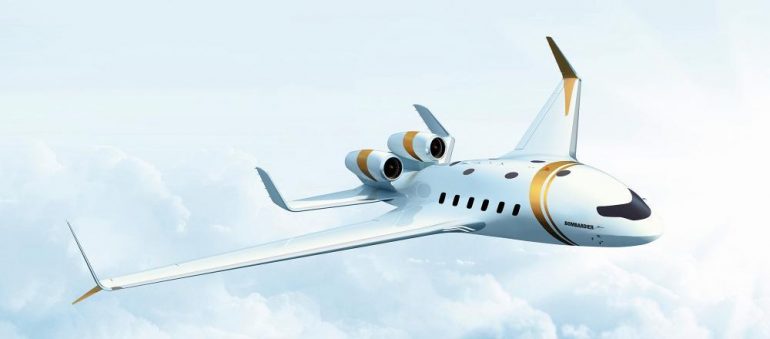Canadian aircraft manufacturer Bombardier has announced that its pathbreaking EcoJet project has moved a step closer to becoming a reality after successfully completing the first phase of testing. The engineering team at Bombardier has been tasked to develop a wide range of technologies to reduce aircraft emissions as part of the EcoJet project. A research platform designed by the company is exploring ways to attain the goal through a combination of advanced aerodynamics and propulsion enhancements. The first phase involved testing of a small-scale model of Bombardier’s futuristic-looking blended-wing-body aircraft that measures 7 percent the size of a standard business jet. In the next phase, a model roughly twice as big and with a number of subsystems added to the design will be tested.
“Bombardier has taken a leadership position in the industry’s efforts to reduce its environmental footprint, and the EcoJet research project is paramount to developing the technologies that will bring us toward the goal of net zero emissions by 2050,” said Stephen McCullough, Senior VP of Engineering and Product Development. “We are very pleased to see the highly engaging results yielded so far and to continue our trailblazing work as we kick off the next phase of this game-changing research project. The EcoJet research project has garnered a high level of interest across the industry, and we are looking forward to mobilizing partners as we continue to define the future of business aviation.”

The sleek-looking blended-wing-body aircraft has been designed to reduce emissions by up to 50 percent compared to a standard business jet, which is achieved with the help of a combination of aerodynamics and enhancements in propulsion. “We’ve been working on blended-wing technology for probably about 10 years or more,” McCullough said. “There’s a lot of nice things about the smoothness of the wings and fuselage, and the fact that the body provides lift and also reduced drag.”

Bombardier business jets are quite popular amongst some of the richest people on this planet; especially the Bombardier Global Express long-haul private jet which is owned by the likes of Bill Gates and Bernard Arnault, CEO of the LVMH group. Most of these billionaires are often criticized for their extensive private jet travel and the resulting carbon emissions. As a result, the development of business jets with substantially lower carbon emissions can be seen as a blessing for these billionaires who are constantly under public scrutiny.


